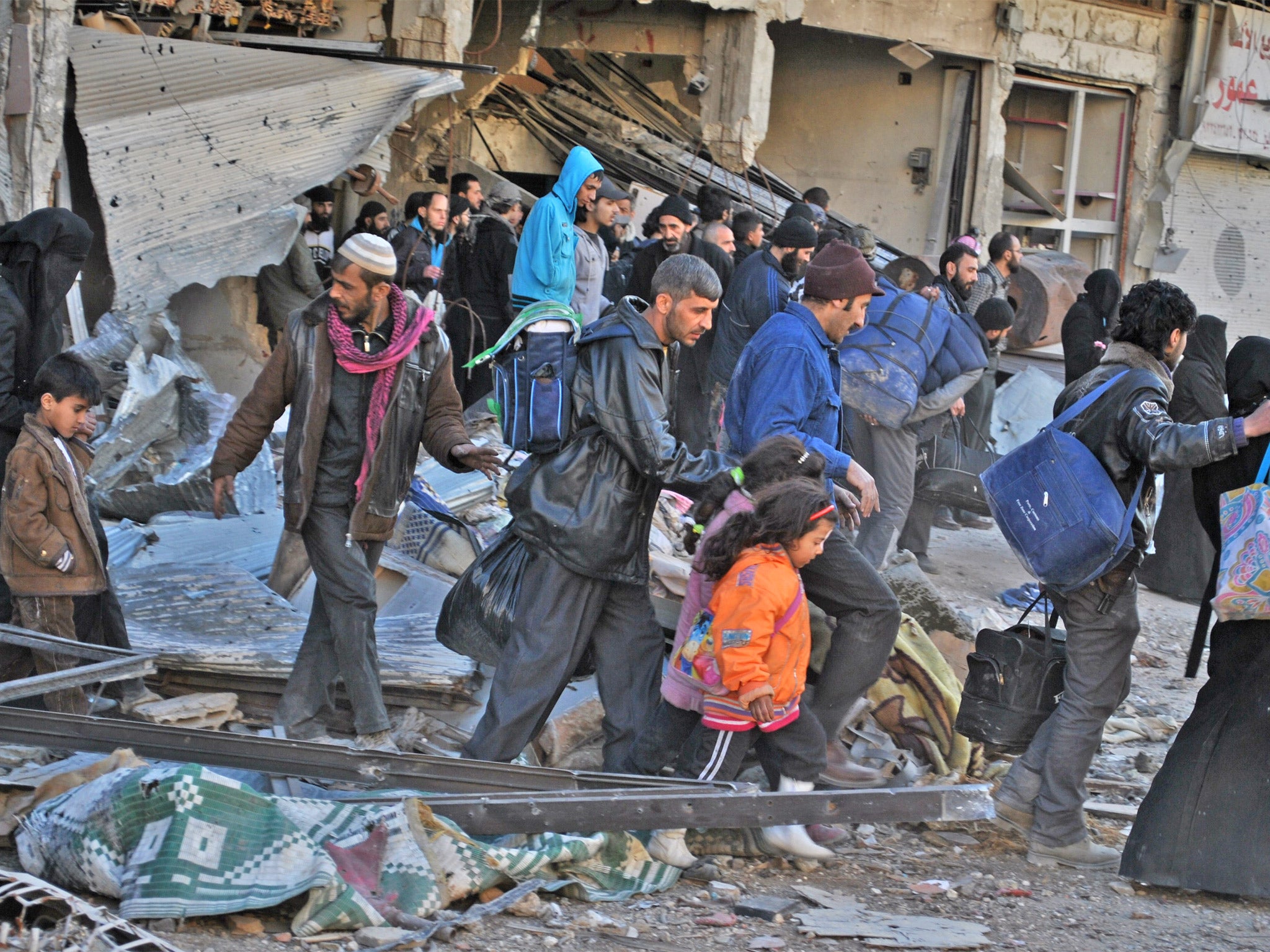Syria conflict: Fears grow for dozens of men missing after Homs evacuation
British Foreign Secretary William Hague said it was 'outrageous' that evacuees were being detained

Your support helps us to tell the story
From reproductive rights to climate change to Big Tech, The Independent is on the ground when the story is developing. Whether it's investigating the financials of Elon Musk's pro-Trump PAC or producing our latest documentary, 'The A Word', which shines a light on the American women fighting for reproductive rights, we know how important it is to parse out the facts from the messaging.
At such a critical moment in US history, we need reporters on the ground. Your donation allows us to keep sending journalists to speak to both sides of the story.
The Independent is trusted by Americans across the entire political spectrum. And unlike many other quality news outlets, we choose not to lock Americans out of our reporting and analysis with paywalls. We believe quality journalism should be available to everyone, paid for by those who can afford it.
Your support makes all the difference.The fate of dozens of men detained by the Syrian security forces as they left the besieged city of Homs is continuing to cause international concern. Some 190 are being held in a school while 111 have been questioned and released according to Talal Barazi, the governor of Homs.
The UN gives a higher figure of 336 men and boys detained and 41 released while others are being questioned under the “general monitoring” of UN staff. Robert Colville, the UN human rights office spokesman, said “it is essential they do not come to any harm.”
It was always unclear what would happen to men of military age, under 55 but over 15, under the UN-brokered agreement whereby civilians are leaving Homs and aid is going in. In theory Syrian fighters who give up their weapons would be pardoned and released but it is not clear that this is in fact happening. The treatment of non-Syrian fighters in Homs was similarly not spelled out nor a clear distinction made between men who had been fighting and those who had not.
The Foreign Secretary William Hague called it “outrageous” that evacuees were being detained. “We need answers urgently about what is happening to them”, he told The Independent.
The Syrian government said that screening had to take place to weed out “terrorists”, a term used by the government to describe all its opponents. It is in the government’s interest to see an end to the siege of Homs, which is the focus of international attention, but its day-to-day control of different sections of the Mukhabarat (secret police) has always been shaky. Units of the National Defence Force (NDF) pro-government militia, often drawn from the Alawite sect, appear to be opposed to the present agreement in Homs and may be responsible for shooting at UN aid vehicles over the weekend.
The deep distrust between government and opposition is making it very difficult to mediate any agreement. The government is not going to give up its siege of the Old City and does not want fighters who have not surrendered to benefit from aid supplies. Rebels will not want to lay down their arms if they expect to be imprisoned, tortured or shot.
Many other areas are besieged or blockaded in Syria, including some by the opposition in the north. The government is short of combat troops to storm rebel-held districts and normally surrounds them with a ring of checkpoints curtailing or stopping people leaving or entering.
The Syrian army and Hezbollah are reported to be planning to attack the town of Yabroud just west of the Damascus-Homs road. Hitherto Yabroud has been held by Jabhat al-Nusra and other rebel brigades and the town still contains many Christians who have reached an accommodation with the opposition. The government is keen to increase its control over the Qalamoun mountains on the Syrian-Lebanese border, not least because it wants to starve rebels in the greater Damascus region of supplies.
Join our commenting forum
Join thought-provoking conversations, follow other Independent readers and see their replies
Comments